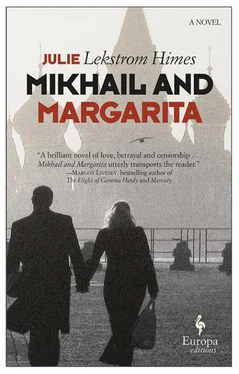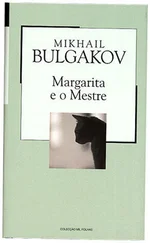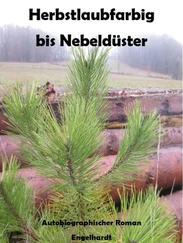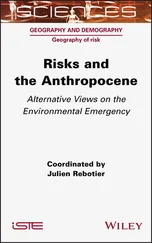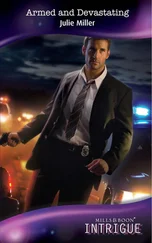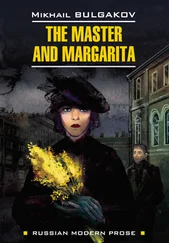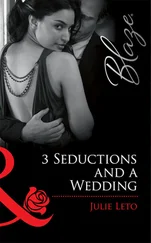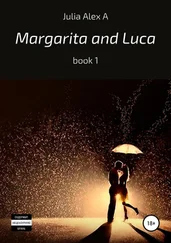The steering wheel extended towards him, over his lap, yet seemed uncertain of this arrangement as well.
The road ahead glowed. Trees rose up on both sides. The sky paved blue overhead.
“Are you nervous, Playwright?” said Stalin.
The world stood with mute alertness; it was nervous for him.
He instructed Bulgakov on the placement of his feet. The engine roared momentarily, then stalled. He went through the pedals once more, and again started the engine. This time the car lurched forward.
“Easy, easy, there you go.” The engine purred. Bulgakov looked up at a sizeable tree as Stalin grabbed the wheel sharply. “You have to steer as well,” he said. Bulgakov took his foot off the accelerator and the engine stalled. Stalin restarted it.
After several tries, they were driving along the straightaway in second gear. Bulgakov rehearsed the rhythm of the pedals in his head as they drove. Before them, the road turned abruptly to the right; the wall of the fortress lay in their path. Stalin was talking; Bulgakov wasn’t listening; he was anxious to slow the car without inadvertently heading into the stone.
“You should seek work as a librettist and a translator,” said Stalin. He seemed unconcerned about the barrier in their path. He said he would make the arrangements.
“Should I—” Bulgakov’s feet wobbled over the pedals; the car groaned.
“Well, of course. I imagine the Theatre Director will wish to meet with you. I can’t comment on the specifics of how these arrangements come about. I imagine you will need to ring them up.” He sounded annoyed.
Bulgakov’s world was losing air. The wall ahead grew in size, seeming to taunt. Would he try to run through it? Did he think he could? He’d better stop short, play it safe, live a bit longer. Go home and write a catchy score.
Though, if he wanted to, go ahead—try to break through.
He touched the accelerator and the engine squealed in protest.
“Damn it, man. The brake—”
Bulgakov stamped down. The car shuddered—with uncertainty or relief—and the engine died. Bulgakov stared at the wall.
Stalin gestured toward the door. “Lesson’s over,” he said. Bulgakov went around to the other side as he slid into the driver’s seat. He drove them back toward the garage. The breeze hummed over their heads. He rested one hand on the steering wheel, the other out the open window.
“I like you, Bulgakov. Do you know why?” He smiled, waiting for an answer. The foliage rushed past behind him. Bulgakov found himself staring at his mouth. He could not dream of a reply.
“You make me feel smart.” He seemed triumphant in this pronouncement, as if providing the solution to a troublesome puzzle. His smile turned slightly. “You may be the most brilliant writer alive today. Some say that. Some say I should trust none of you. Yet somehow you make me feel smarter.” Stalin’s gaze moved past him, into the woods alongside them. He grew more serious. “Perhaps that’s why you’re still here.” With the writer’s expression, he laughed aloud. The road opened into the larger Ivanovskaya Square. Pedestrians raised their heads as though they’d heard his laughter too.
“You are like the rabbit,” said Stalin. “Happy in your burrow, fearful of the sky with its owl.” He seemed pleased with himself for conceiving of this. He looked at Bulgakov again as if to verify his hypothesis, then nodded. Yes, the rabbit.
The car approached the low building; the doors opened. Stalin stopped outside and turned off the engine. “You have a wife?” Bulgakov shook his head. Stalin smiled. “But there is a woman,” he said. He tapped his finger on the side of his brow. “That is all a Bolshevik needs. A good woman. Good purpose. This you have.” He stopped smiling. Again he stared off to the side, beyond Bulgakov. “Perhaps if you got smarter, things would change.” He turned to the writer directly. His eyes trembled slightly beneath the thick brows. “Don’t try to be smarter than me.” Then, the skin around the eyes broke into scores of tiny lines. He smiled again and leaned toward him slightly. “I might miss you.”
Bulgakov felt flattered and alarmed; beloved and yet perfectly disposable. How did one measure that kind of standing? Was Piaquin beloved? Were similar endearments bestowed on Mayakowsky and Gorky before they disappeared? How did he rank among his peers in this?
“What about Mandelstam?”
The sound of his voice first startled, then frightened him. It sounded a thin bravado; an outlay of currency he could ill afford. There was no other sound, no bird, no passing motorcar. Nothing else in the world dared to speak or offer a needed distraction.
Stalin got out. He moved slowly, as if he’d aged. A driver appeared, but Stalin waved him back. He turned and leaned on the door. He stared at the floorboards near Bulgakov’s feet.
“What about him?” said Stalin.
“Will you miss him?” Again, his words were wildly disengaged from his better sense. They seemed determined to sound out the space of that affection, as though by such he could measure his own worthiness.
Stalin shook his head. “No. I won’t.” He studied Bulgakov.
His was an honest answer. Mandelstam did not make him feel smart.
“Truth is,” he confessed. “I don’t understand most poetry.”
First the thought came, Mandelstam is lost. Then, with growing despair, We are lost. The value of each of them, their loves and desires, their efforts and failures, would be measured by this one. The one with the cockroach on his lip.
“Will you miss him?” Stalin asked.
Here was his opportunity.
From above came the rhythmic chirping of a bird; a single note, a relentless pinging against his brain like the rapping of his door. They were here for him. Just on the other side. They waited for his reply. He needed to answer.
Stalin seemed curious now, his eyes bright.
What was there to say? Of course! Yes! Such words should be shouted. Osip was his friend—his mentor—his champion. He loved him. Of course he would miss him. He would miss all of the particulars about him. The world would miss him too, though that would be a vaguer thing, distant and sadly diplomatic.
He imagined speaking the words aloud. How that face before him would change—the eyes would cloud. Earlier declarations would be reconsidered; affection that had been professed would be reassigned to another. Something within him quietly reasoned—Osip had created his own future. He didn’t share his beliefs. He didn’t care to share his fate.
Would he miss him? A small place in the world would be vacant; a beautiful and loving mind blotted out. Every day, such things go unnoticed.
If he said it— he imagined the scene—agents would come in the night, deliver him to a prison. There would be a fabricated charge. Torture and a mock trial. Then eight years in a penal colony. Sentences were often doubled for inscrutable reasons. Hard labor underground scraping nickel from the earth; his skin turning white like paper. There would be no pen, no ink. Only chalklike flesh.
Arrests were made for far lesser things.
The breeze lifted for only a moment. The day was absurdly beautiful.
If he answered —what difference would it make? It wasn’t by his word that locks would be undone. That Stalin would exclaim I’m sorry—I didn’t know. You’ll miss him? Then of course I shall free him. Immediately—come—we’ll make the call together.
And if he was silent. The sounds of the world would continue. The bird. The car. They would fill the stillness. It would go unnoticed.
He remembered Osip’s shining head. Could he leave him again—here—when his voice might actually matter? His shoulders drew in. They were his words to say.
Читать дальше
